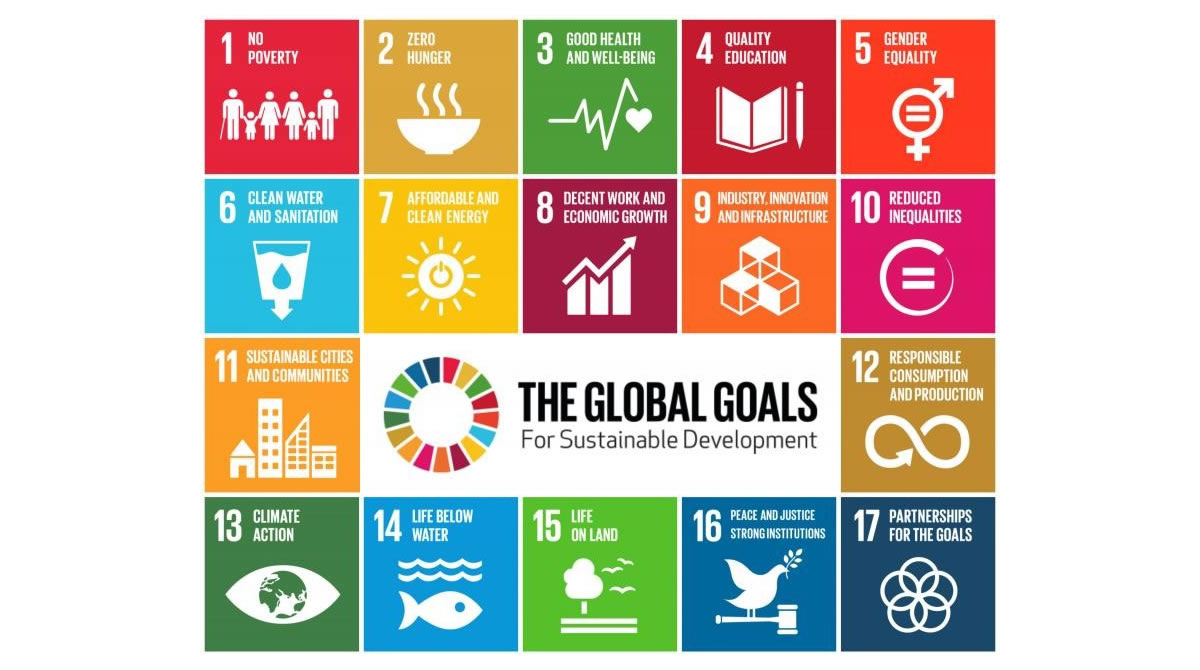HER 2020 | Sustainable Development Goals: Their potential and relevance for higher education policy and reform, 31 Aug - 2 Sept, 2020
Higher education confronts a curious paradox. One of its traditional core missions is innately conservative: to conserve and transmit knowledge and culture for and to future generations. This tends also to be conservative in the related sense of reproducing the cultures – the modes, values and mores – of the different societies which it inhabits and which sustain it.
Universities are also expected to create new knowledge and understanding by means of research. Innovation is highly valued in modern, generally competitive, societies. This overflows from scientific discovery and increasingly its application as technological change in the form of the Fourth Industrial Revolution feeds into change more broadly as envisaged in Society 5.0 – for example to enable greater equality, valuing of diversity, and globalisation.
The shared ecological condition known as the Extinction Crisis has this year been added to the UN-driven effort to address human development through the Sustainable Development Goals (SDGs). These 17 Goals were set to be attained by 2030 by and for all nations. viz

The SDGs embrace all areas of life and endeavour, including Goal 4, Education, and within that higher education and also lifelong learning. Their reach, however, like that of Higher Education itself, is into every corner of learning, knowledge and understanding. They require action within and across all the Goals - a massive challenge to the universal tendency to compartmentalise for easier understanding and management.
In this critically endangered world, universities cannot avoid the question as to how their mission and work relates to the SDGs, and as part of the solutions to this the climate crisis. Does their natural and traditional duty to conserve and transmit box them into a sub-section of Goal 4, or can they become a key force in the trans-sectoral and transdisciplinary effort urgently needed for survival and healthy adaptation?
HER 2020 invites the research and teaching community to answer this question in analysing the place and work of Higher Education in and beyond the SDGs period to 2030, but also more immediately as global warming indicators accelerate their rise.
Contributions might address any of the span of issues thus raised including:
- Leadership, policy intervention on and outright advocacy for the SDGs
- SDGs and curriculum development policies for higher education
- SDGs and their impact on the research agenda
- Re-defining university ‘engagement’ and lifelong learning fit for widened purpose.
- The potential and challenges of multi-disciplinary working to drive progress on SDGs
- Relationships between institutions in the Global North and Global South
- Collaborations and partnerships to address environmental challenges (SGD)
- The role of academic staff and student exchanges to strengthen capacity to address SDGs
- SDGs and higher education policy at the national and international level
- Regional and global engagement for SDGs – the service mission of universities.
The 2020 Higher Education Reform Conference (HER 2020) will provide a forum for discussing the relationship of the Sustainable Development Goals (SDGs) and Higher Education Policies and Reform. The goal is to provide a platform for higher education researchers, policymakers, and leaders to assess and explore ways in which higher education can promote progress towards the SDGs, and contribute to sustainable development and social justice in all countries.
The Conference will be held in Glasgow, under the auspices of Centre for Research and Development in Adult and Lifelong Learning (CR&DALL), based in the School of Education at the University of Glasgow. Founded in 1451, the University of Glasgow is the fourth oldest university in the English-speaking world and one of the top 100 of the world's universities. It welcomes students from more than 140 countries and has around 29,000 undergraduate and postgraduate students with a global community of over 219,000 alumni. has more than 3,400 research and teaching staff - and an annual research income of more than £179m. Most prominent among its alumni are the father of economics, Adam Smith, the inventor of the steam engine, James Watt, and the physicist and engineer Lord Kelvin.
The Glasgow conference is the 17th in an international series of conferences (formerly ‘International Workshops’) on Higher Education Reform, which have taken place annually since 2003. The first in this series was held in Vancouver, Canada, organised under the auspices of the Centre for Policy Studies in Higher Education and Training at the University of British Columbia. Subsequent conferences took place in Asia (Tokyo, Shanghai, Tianjin and Hiroshima), Europe (Vienna, Dublin, Berlin and Ljubljana), and North America (Mexico City, St. John’s, Pittsburgh and Baltimore).
Call for proposals
Like the preceding conferences, the 17th HER Conference will focus on comparative analysis and discussions of policy and reform in/of Higher Education. The conference will support an open exchange of views in a collegial environment, based on empirical research and policy analysis. As with previous HER conferences, a selection of papers and panel presentations will be published after the conference.
Three types of proposals are invited:
- Papers (single or dual authorship)
- Panels (between three and five panelists)
- Poster presentations (particularly welcome from early career researchers).
Proposals (up to 400 words for papers and poster presentations, and up to 800 words for panels) should describe the issue(s) the presentation will address as well as the conceptual or theoretical framework guiding the research or policy questions and the type of data for the analysis.
They should also indicate the names, affiliations and mail address of presenters (in case there are several presenters, of the corresponding presenter).
Proposals should be sent via email to: [email protected] by April 30, 2020.
Submissions will be peer-reviewed and the result communicated to proposers within two weeks of submission.
For questions and suggestions, please contact the Chair of the Organizing Committee, Dr. Muir Huston - [email protected]
| Attachment | Size |
|---|---|
| her17-call_for_proposals.pdf | 259.32 KB |
 Printer-friendly version
Printer-friendly version- Login to post comments
- Calendar







